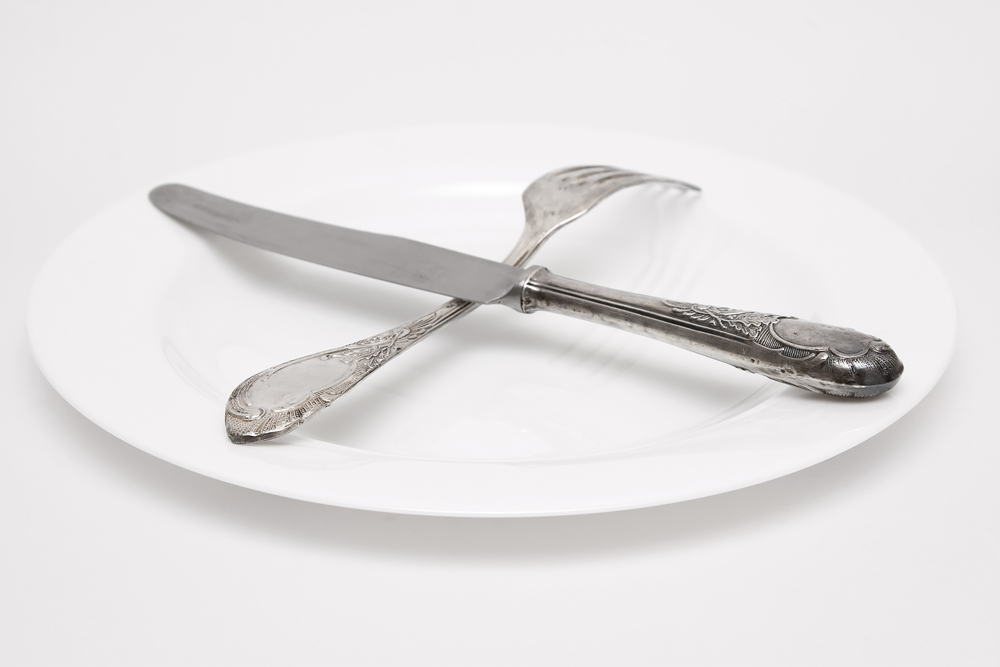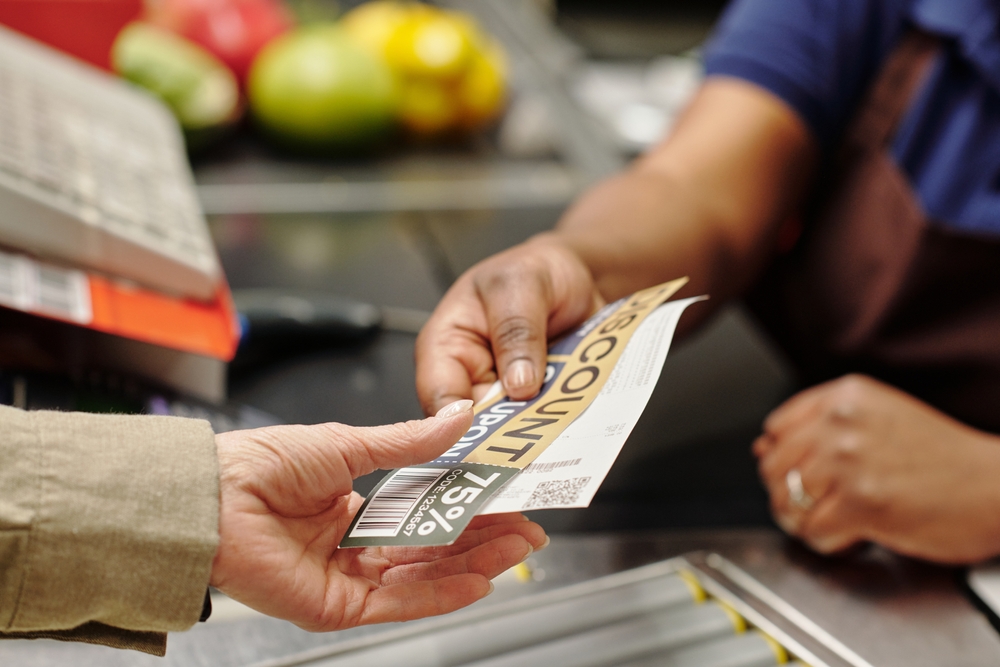People who grew up in poverty often develop a habit of comparing prices and calculating costs before making any purchase. This behavior stems from years of being forced to stretch every cent and prioritize only essentials. Even when their financial situation improves, the instinct to double-check the price tag rarely disappears. Psychologists explain this as a form of scarcity conditioning, where the brain adapts to constant financial pressure and views all purchases through a lens of caution. They may hesitate to buy name-brand products or opt for secondhand items even when they can afford better. This habit is not just about saving money, it is about preserving a sense of security that was missing in childhood.
Feeling Guilty for Spending on Themselves

Growing up with limited resources often means learning to suppress personal desires. Children in low-income households might see their parents go without so the family can survive, shaping a deep belief that spending on oneself is selfish or wasteful. As adults, they may struggle with guilt when they indulge in something nonessential, even something small like a coffee or a new shirt. Financial therapist Amanda Clayman notes that emotional responses to money are often rooted in early experiences, and those raised in poverty may feel unworthy of comfort or luxury. This guilt can linger even when their circumstances change.
Hoarding Items, Just in Case

People who grew up poor often become natural hoarders of items that others would discard. They may keep old jars, scraps of fabric, broken appliances, and leftover food. This behavior is linked to a mindset of resource preservation. When you live without a safety net, nothing feels disposable. Even when they have more than enough, the idea of running out or wasting something can trigger anxiety. The Depression-era generation is well known for this habit, but it still shows up in younger people who experienced economic hardship. The tendency to hoard is not about being messy, it is about feeling prepared in case money or resources become scarce again.
Saying Yes to Jobs or Opportunities Out of Fear

Adults who grew up poor often say yes to every job offer, gig, or favor, even when it drains them. This habit reflects a fear of future scarcity. Saying no feels risky, because they were raised to believe that any opportunity, no matter how small or unpleasant, is better than none. They may overcommit themselves at work or accept underpaid roles because they worry the next offer may never come. Studies on poverty-related trauma show that children in low-income households may develop hyper-responsibility and people-pleasing tendencies to avoid rocking the boat. In adulthood, this often translates to burnout and difficulty setting boundaries.
Feeling Uncomfortable Around Wealthy People

Even if someone moves up financially, growing up poor can create a lasting discomfort around people with money. They may feel like imposters in wealthier circles or assume others are judging their background. This feeling of not belonging is deeply tied to social class and identity. Sociologists call it “class migration anxiety,” where upward mobility brings tension rather than ease. Adults who grew up poor may avoid conversations about money, dress down to avoid attention, or feel defensive about their past. The gap between their childhood experience and their current life can be difficult to reconcile emotionally, even if they are financially stable.
Overpreparing for Emergencies

Many people who grew up poor are intensely focused on being prepared for worst-case scenarios. They may stockpile nonperishables, keep extra cash hidden, or constantly check their savings. This behavior reflects a survival mindset formed in childhood. If you have lived through a time when the fridge was empty or the rent was unpaid, you learn to expect crises. Financial security does not always remove that fear. Instead, the brain remains wired to anticipate disaster. This can be exhausting, but for many, it feels like the only way to stay safe. Emergency planning becomes a lifestyle, not just a precaution.
Avoiding Debt at All Costs

Adults who experienced poverty as children often view debt with intense fear or shame. They may avoid using credit cards or taking loans, even for reasonable things like education or housing. This mindset comes from witnessing the stress debt caused in their family or seeing others trapped in cycles of repayment. Even though modern financial advice recognizes the strategic use of debt, those raised in poor households often equate debt with danger. They may overpay in cash or miss out on opportunities due to this fear. While financial caution is smart, in this case it can become limiting if not addressed.
Eating Everything on Their Plate

People raised in poverty were often taught not to waste food under any circumstances. This message tends to stick into adulthood, even when they have plenty. They may eat leftovers that are past their prime or finish meals when full just to avoid throwing food away. This habit can affect physical health and emotional wellbeing. Nutritionists point out that intuitive eating becomes harder when guilt overrides hunger cues. For those who grew up without enough, eating everything on the plate is not about hunger, it is about respect for resources and fear of future scarcity. This mindset is hard to unlearn.
Preferring Simple or Familiar Foods

Food preferences can reflect early economic experiences. Adults who grew up poor may prefer inexpensive, simple meals like toast, ramen, or canned beans, even if they now have access to a wider range of options. This is not just about taste, it is about emotional comfort. Those foods represent safety and reliability. Trying unfamiliar cuisine can feel like a risk when your early experiences taught you to value predictability and frugality. Psychologists say that food nostalgia is strong, and those raised in low-income households may stick with what they know because it brings a sense of control.
Having Trouble Asking for Help

Growing up poor often teaches children to be self-reliant and resilient. They may have had to take care of siblings, manage household tasks, or contribute to the family income. As adults, they may find it difficult to ask for help, even when struggling. This reluctance is not pride, it is protection. They may associate vulnerability with danger or see reliance on others as a luxury they cannot afford. This can lead to isolation and burnout, especially in high-stress environments. Therapy and support networks can help, but first they have to feel safe enough to reach out.
Hiding Their Financial Success

Some people who grew up in poverty are uncomfortable showing signs of financial improvement. They may downplay a promotion, avoid upgrading their home, or hide new purchases from family. This comes from guilt or fear of judgment. They may worry about being seen as showing off or abandoning their roots. In some communities, success is viewed with suspicion, especially if others are still struggling. Psychologists refer to this as survivor’s guilt. It can lead to self-sabotage or tension with loved ones. Balancing pride in growth with loyalty to one’s background is a common emotional challenge.
Read More: Terrifying Money Mistakes That Could Haunt You for Years
Struggling to Enjoy Rest or Leisure

For those raised in poverty, rest can feel indulgent or even unsafe. Many grew up seeing their parents work multiple jobs with no time off. That image becomes internalized, making it hard to relax without guilt. They may feel lazy taking a vacation or struggle to enjoy a hobby if it does not produce income. This mindset is known as productivity trauma, where value is tied directly to output. Over time, this can cause stress-related illness and emotional exhaustion. Learning to rest without justification is often a key part of healing from a scarcity-based upbringing.
Obsessing Over Coupons or Deals

Even when no longer necessary, the habit of clipping coupons or hunting for the best deal can linger. This behavior can become a form of control or security. It creates a sense of power in an area where they once felt powerless. Shopping frugally becomes more than a strategy, it becomes an identity. People who grew up poor may feel anxious if they buy something without getting the best possible deal. Behavioral economists call this loss aversion, where the pain of overpaying feels greater than the joy of acquiring. It reflects a long history of stretching every dollar.
You Cant Erase The Past

People who grew up poor often carry lifelong habits that are subtle but deeply rooted in their early environment. These behaviors can show up in how they spend, eat, save, and interact with others. While some of these habits are helpful, others may limit their wellbeing or prevent them from fully enjoying financial stability. Understanding where these habits come from can be a powerful step toward healing. It is not about erasing the past, it is about making peace with it and building a new relationship with money, self-worth, and comfort.
Read More: 19 Money Mistakes Real People Wish They Could Undo
Disclaimer: This article was created with AI assistance and edited by a human for accuracy and clarity.
